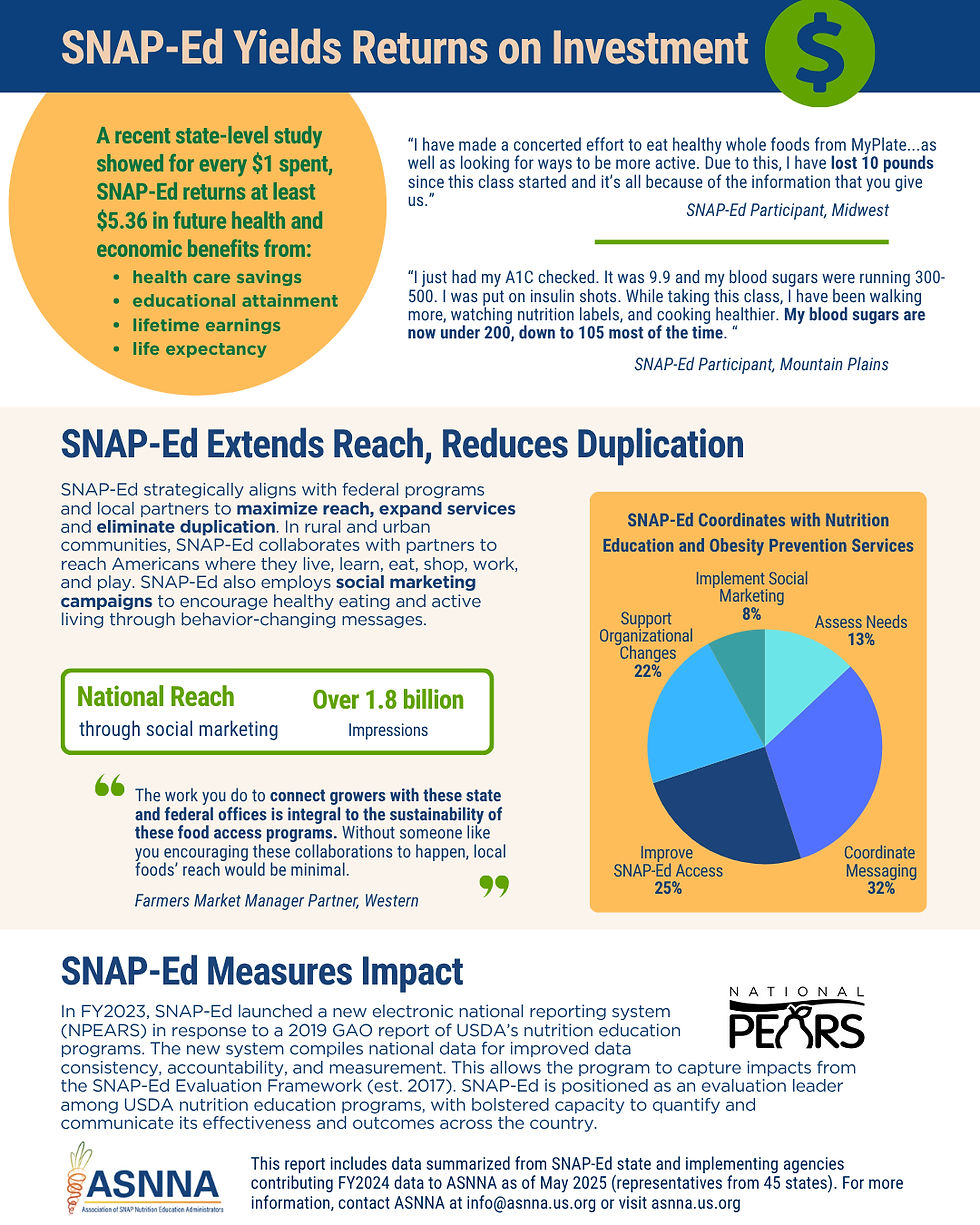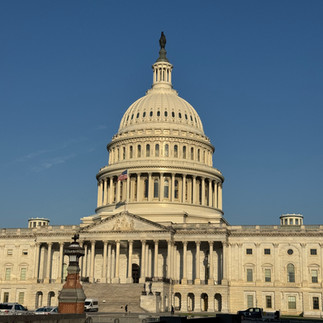Pushing the Boulder: Defending Nutrition Education in Uncertain Times
- Jennifer Folliard
- Jun 27
- 2 min read
Updated: Aug 25
This week, a colleague told me what we were doing reminded them of the myth of Sisyphus, pushing a boulder uphill, only to watch it roll back down again. I couldn’t help but agree. Advocacy can feel like that sometimes. But this week, I had the honor of taking that “boulder” to Washington, D.C., where the stakes couldn’t be higher: defending the largest federally funded nutrition education program in the country, SNAP-Ed.


Since mid-May, when the House of Representatives unexpectedly included the elimination of SNAP-Ed in their budget reconciliation bil, what some are calling the “big beautiful bill”my colleague Matthew Marsom of Goodwin Strategies and I have been working non-stop, along with member leaders at the Association of SNAP Nutrition Education Administrators (ASNNA). Together, Matthew and I bring over 30 years of experience in nutrition policy. We’ve been through many fights over SNAP-Ed, and this program has always had bipartisan support. This fight feels a little different - a total repeal of the program in the House and the elimination of funding for the program in the Senate bill.
These provisions are only a piece of a much broader and deeply concerning trend. Both bills propose sweeping cuts to public health infrastructure, including Medicaid and SNAP. What's most troubling isn’t just the scale of the cuts, but the lack of meaningful debate about the value and outcomes of these programs. Instead, the focus has narrowed to budget math and balance sheets. On one side: the push to make tax cuts permanent. On the other hand, a dismantling of the social safety net, including programs that have proven long-term benefits for health and economic resilience.
There are ways to responsibly wind down programs. There are ways to have honest discussions about performance and modernization. But that’s not what’s happening here.
What keeps me going is the remarkable breadth and depth of support behind SNAP-Ed. This program is embedded in a resilient, interconnected food system that reaches every corner of the country. In just the past few weeks, more than 400 community-based organizations have signed a letter urging Congress to preserve the program. Grocery retailers, public health institutes, university extension systems, and grassroots organizations all recognize its value.
This kind of cross-sector teamwork is what makes public policy move—and it’s something I’ve never taken for granted. Our partners in this fight include the National Grocers Association, the Academy of Nutrition and Dietetics, the Association of Public and Land-grant Universities (APLU) and Cooperative Extension, Leah’s Pantry, The Food Trust, and countless others.
As negotiations continue on Capitol Hill, my hope is that members of Congress look beyond the spreadsheet. I hope they see the deep and broad impact of our food system, and adopt a more thoughtful, responsible approach to change, particularly when it comes to SNAP-Ed.
Because this work may feel like pushing a boulder up a hill. But it’s work worth doing.
*The artificial intelligence tool, ChatGPT-5, was used to improve the formatting and readability of the original draft written by the author. All content decisions remain entirely the author’s work.
.png)









Comments